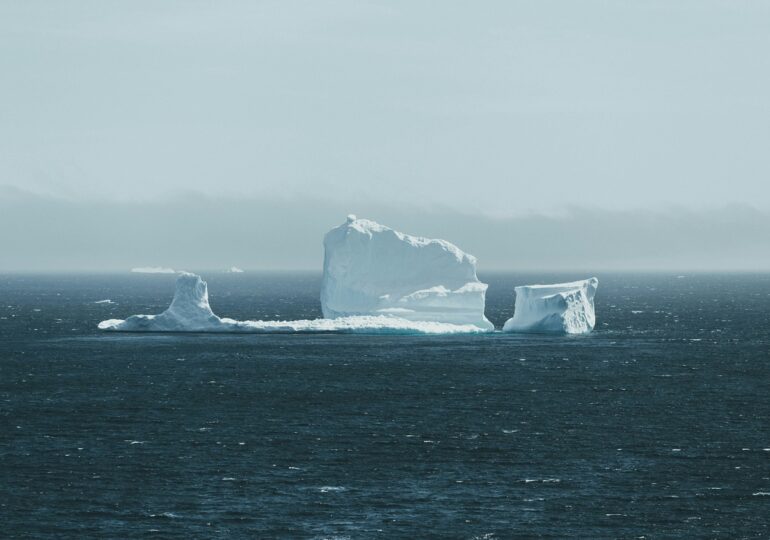The pace of Arctic ice melting has dramatically slowed down, despite the ongoing global warming caused by the burning of fossil fuels. Natural variations in ocean currents could explain this surprising process.
The dramatic slowdown in the melting of Arctic sea ice over the past 20 years is unexpected, considering that carbon emissions from the burning of fossil fuels have continued to rise, capturing more heat during this period, say researchers, according to The Guardian.
Natural variations in ocean currents that limit ice melting have likely balanced out the effect of continued global temperature rise.
The research, published in the journal Geophysical Research Letters, used two different data sets on Arctic ice levels from 1979 to the present. Scientists analyzed the sea ice extent for each month of the year, and the slowdown was observed in all cases.
To see if such a slowdown could be a result of natural variations, the study authors examined the results of thousands of climate model runs.
"This is not an extremely rare event - over a century, it should happen several times," said the study's lead, Dr. Mark England from the University of Exeter. Moreover, all simulations showed that the loss of sea ice accelerates again after the slowdown.
"We know that climate records, whether it's global temperatures or sea ice, can stay the same for several years in a row due to internal climate variations," explains Prof. Julienne Stroeve from University College London.
Stroeve's analysis of the long-term trend from 1979 to 2024 shows that for every ton of CO2 emitted, approximately 2.5 square meters of September ice are lost.
However, it is very likely that, at some point in the next five to ten years, the melting will resume at a pace approximately twice as fast as the long-term trend, scientists estimate.
Additionally, the fact that the melting pace has slowed down does not mean that the Arctic ice sheet is recovering. The sea ice extent in September, when it reaches its annual minimum, has halved since 1979 when satellite measurements began.
The climate crisis remains "undeniably real," scientists have said, and the need for urgent action to avoid the most severe effects remains unchanged.
"The good news is that 10-15 years ago, when the loss of sea ice was accelerating, some people were talking about an ice-free Arctic before 2020. But now, natural variations (...) have given us a little more time, but it's a postponement, a temporary matter. When it ends, it won't be good news anymore," says Dr. Mark England.
He dismissed any theory that the slowdown in Arctic ice melting would suggest that climate change is not real. "Climate change is unequivocally real, human-induced, and continues to pose serious threats. The fundamental science and the urgency of climate action remain unchanged.
It is important to explain to people that (the slowdown in melting) is happening, otherwise they will hear it from someone trying to misuse it as a way to undermine our very solid understanding of what is happening with climate change."
T.D.

